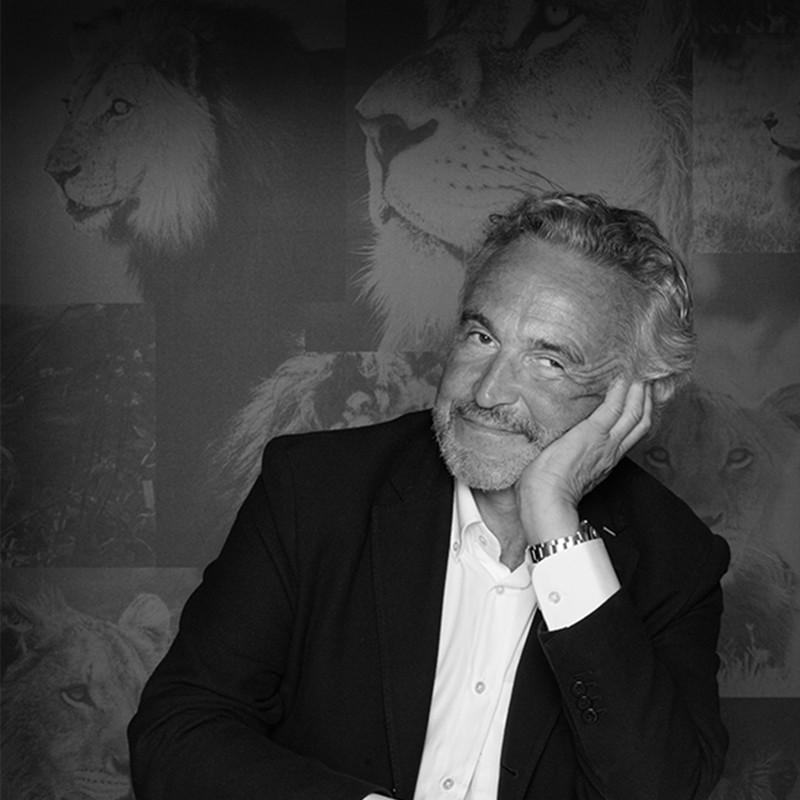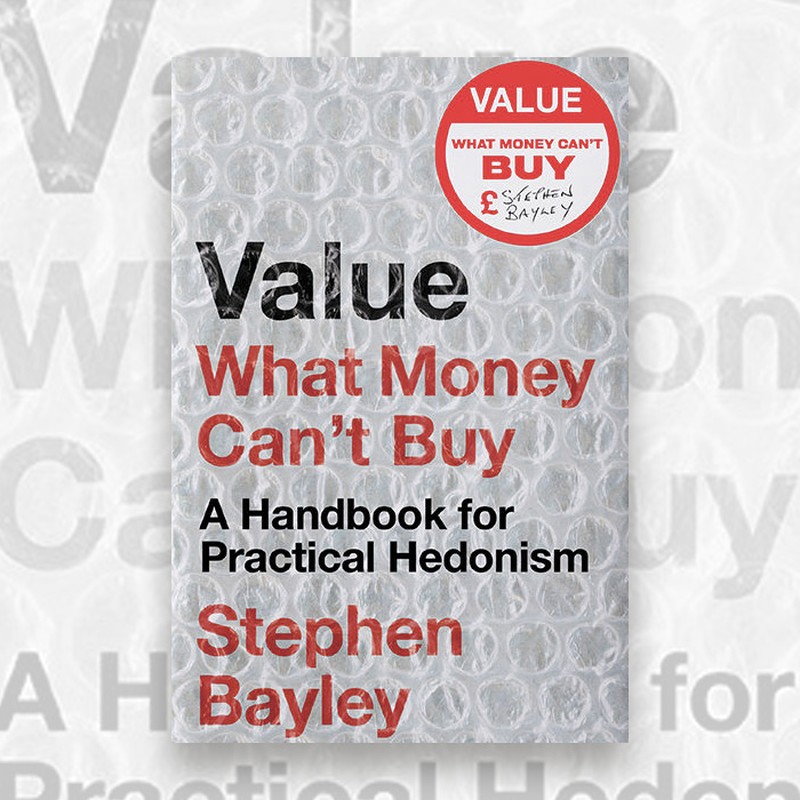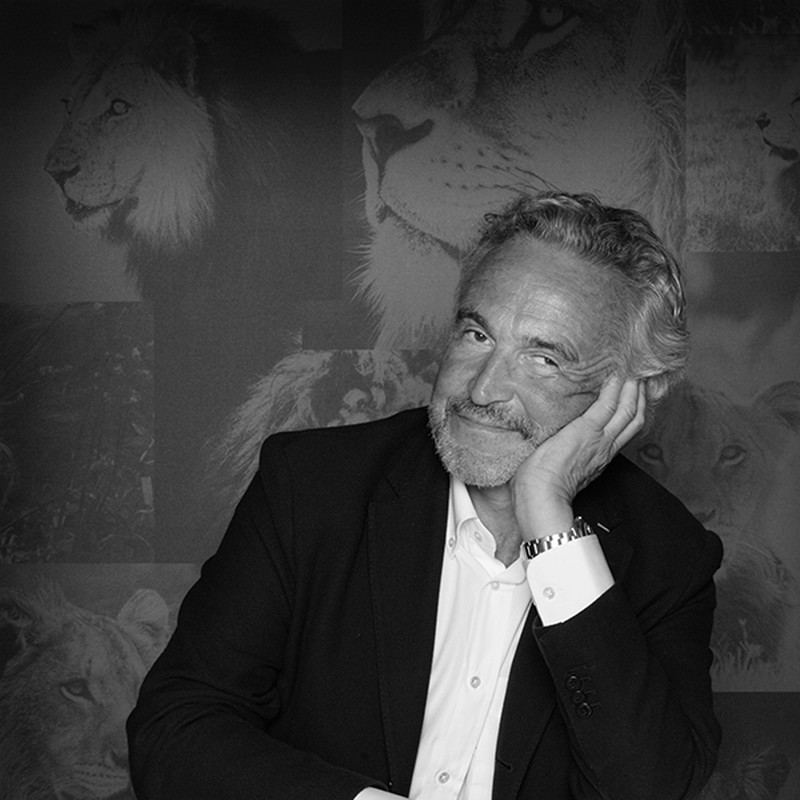A Design Guru On How To Appreciate The Simple Things
Design is about investing things with meaning. That’s what the designer does. Then it’s down to the consumer to try to understand and appreciate that meaning. This doesn’t just apply to objects on display in galleries – design is not just tied up with rare or precious things. The whole world can be read, understood, criticised and enjoyed in this way.
As we’ve moved into the digital era, we’ve lost a lot because so much is now moderated through a plasma screen. I'm not a beardy, tweedy technophobe – I actually think a lot of the world’s problems could probably be sorted by more technology, not less. It’s just we need different sorts of technology. I think there’s a pressing case to be made for appreciating the simple pleasures in life, the ones found in the analogue world.
Some of the greatest pleasures in life are free – or at least not very expensive. Going for a walk, looking at buildings, reading attentively, making coffee – these are simple things that, done properly with good design, become satisfying rituals. One of my favourite writers Joan Didion was once visited by a profile writer in her apartment. The journalist saw she had set a table for one, with a linen tablecloth and a baccarat crystal glass – it looked like perfection – and asked if she did that every day. Didion said yes – because every day is all we’ve got. That’s the thing, you’ve got to seize the day. I think I learnt that from my Welsh grandmother, who was always deferring her pleasures and gratifications to some unknown point in the distance, and never got round to attending to the present moment.
Buildings are a great example of design with meaning – we should pay them more attention. The buildings we live and work in determine our behaviour. Architecture is more important than politics for me because it lasts longer than politicians and, if you’re lucky, it's beautiful to look at – which no one has ever said about a politician. More seriously, material things like buildings can be read and we should get to know them because in the end, civilisations and societies are best understood by artefacts like buildings. Think about the pyramids – they tell stories that define our understanding of ancient Egypt.
I have learnt to enjoy everyday experiences from designers. I've been very lucky over the years to have met a great number of the world's most interesting, well-known and successful designers. The book is a bit like a distillation of everything I’ve learnt from talking to wonderful people like Dieter Rams, Ettore Sottsass and Raymond Loewy. Anything designers have to say about how to live your life is contained here!
The design of your coffee cup is important because every day is important. I learnt that from Terence Conran. He was a monster in some ways but he had a belief system which is, on the whole, very impressive and benign. Who wants to mortgage the present for a future that might not happen? My Welsh grandmother, perhaps, but I would rather invest everything I possibly can in today. You’re missing a trick if you don’t enjoy the everyday.
There are no absolutes when it comes to design and good taste. What Terence did with Habitat and the other brands he founded was he monetised his own taste and sold it to us as ‘design’. He’s a huge influence on what we all now think of as good design, but there aren’t really any absolutes when it comes to taste. Taste is simply something different tribes use to express their values and preferences. I don’t always share someone’s taste but I’d never tell them they’ve got bad taste – we’re probably just from different tribes. With any object or building or whatever else, you can measure them in many ways against many metrics, but when it comes to the big question of whether you like that thing, there are no metrics. That’s what makes all of this so fascinating.
Marcel Duchamp knew time was more important that money. I think lockdown might make us all a bit more like him. After he had revolutionised our ideas about art, he spent the last 40 years of his life playing chess. He had the same lunch of spaghetti and red wine every day. The owner of the little restaurant he went to eventually asked him why he was sitting around doing nothing but playing chess and eating pasta, and why he hadn’t capitalised on his status in the art world. Duchamp told him, well, my capital is time not money.
When the restrictions start to ease, we'll notice the small stuff. Meeting a friend or just going out by yourself for a coffee with a newspaper in the morning is going to feel like an exotic journey. Where I live in London, there are some Portuguese cafés I’ll be going to for exactly this experience – the simple things again! I’m also going to spend lots of time at a wonderful place called the Chelsea Arts Club and it’ll be great to get back to the London Library.
Travel, to me, isn't the 'small stuff'. It doesn’t broaden the mind, it narrows it. When someone says to me, you must go to Kazakhstan, I say I haven’t been to Rome often enough yet – can I just go back there? It’d be worth the trip for the Schostal menswear shop.
However, I love Greece, Italy and Spain for simple pleasures. Madrid is a great city – seek out the Bodega de la Ardosa – but the real place for me is where my friends are, close to Girona in Catalonia. It’s completely untouched by tourism, just rolling hills, medieval buildings, a terrific butcher’s and a wonderful food culture. I’d rather like to see the inside of the American Bar in Vienna soon too. The place I hope to spend a bit of time this year is my sister-in-law’s house. It’s on a Greek island that’s not so much unspoilt as never improved in the first place. Nothing has ever happened there in the whole of human history – there’s not even a single shard of pottery in the local museum. It’s just the quintessence of Greece. You could say it’s perfectly designed.
I hope my book helps everyone appreciate the simple things. It came about after a meeting with my publisher and each chapter is supposed to be a bit like a conversation over lunch. There are about 30 chapters and they add up to something like a secular sermon about life and how to enjoy it. Though they’re much more mischievous than that sounds! Books should be interesting and thought provoking, which is why I’ve never written anything I expect everyone to agree with. This one, I genuinely believe, has an interesting idea on every page. I hope I haven't made it sound like a hippy-dippy mindfulness book. It’s not! It’s about how you can enjoy simple things and get maximum pleasure from everyday stuff.
Value – What Money Can’t Buy by Stephen Bayley is published by Constable in hardback on 11th March. Pre-order it here. For more about Stephen, check out StephenBayley.com.
DISCLAIMER: We endeavour to always credit the correct original source of every image we use. If you think a credit may be incorrect, please contact us at [email protected].




